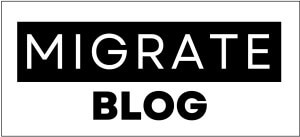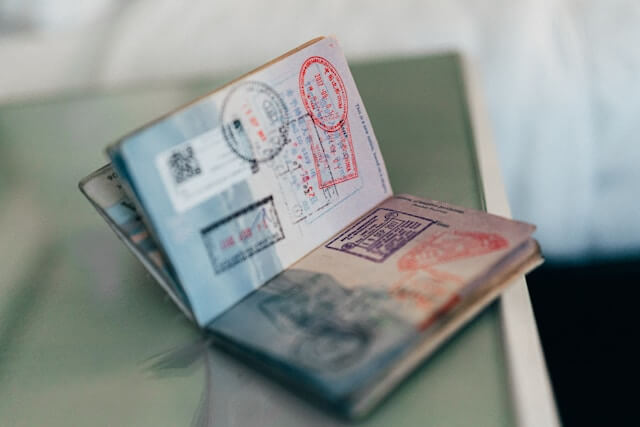Are you looking for the easiest way to apply for Canada student visa from Nigeria? We’ve got you covered.
In recent times, Canada has been the choicest study destination for a lot of Nigerians who want to extend their educational pursuits. And for good reason – Canada is one of the most liberal countries in the world with a great multicultural tint.
And that’s not all, Canada offers a great quality of education which can only be rivaled by few other countries in the world. But you already know this, which is why you are considering this great country for further studies.
Once you have gained admission, the next logical step is to obtain a Canada Student Visa. Fortunately, if you are in Nigeria, you can apply for this visa with a considerable chance of getting it.
Although the process is often rigorous, we have simplified the process for you. In this article, we will discuss how you can apply for a Canada student visa in Nigeria and stand a good chance of getting it right. Let’s get into it.
What is a Student Visa?
A student visa, also known as a study permit, is a document the Canadian government issues to international students. It allows foreign nationals to study at designated learning institutions (DLIs) in Canada.
As long as you have gained admission into an educational institution in Canada, you will need to obtain this visa before you can begin your academic journey in the country.
It’s important to note though that a study permit is not required if your course or program lasts for six months or less. You only need it if you are going for a longer academic program like a Master’s or Ph.D. program.
Also Read:
- 5 Best Countries to Study Abroad and Why
- 7 Best Jobs You Can Get as an International Student in Canada
- Can I Get a Good Job with Visa Sponsorship in Canada?
Requirements for Applying for a Canadian Student Visa in Nigeria?
Before you begin your application, it’s important to find out the requirements for a Canada Student Visa. Usually, meeting these criteria will increase your chances of a successful application.
Let’s find out what they are:
1. Letter of Acceptance
You must first receive an acceptance letter from a designated learning institution (DLI) in Canada before applying for a Visa. In fact, once your school sends you a letter of admission, you are now fit to apply for your visa. However, to be eligible for a study permit, ensure that your program is longer than six months.
2. Proof of Identity
Next, you will need to provide a valid passport or travel document. So get this ready before your visa application. One thing you must take note of concerning passport identities is that your passport should be valid for the entire duration of your stay in Canada. So, if your passport is about to expire, renew it immediately.
3. Proof of Funds or Financial Support
Before approving your visa, the Canadian government wants to know that you have enough money to cover your tuition fees, living expenses, and return transportation. So, usually, they will demand proof of funds from you. This could include bank statements, scholarship approval, or a letter from your sponsor. The current amount that the government expects you to have is $10,000 per year and $833 per month. That is for a single student traveling alone.
4. Immigration Medical Examination (IME)
In most cases, you may need to undergo a medical examination to ascertain your medical fitness. While you can do this before applying, it’s usually better to do it during your visa application.
Keep in mind that your own doctor cannot do this exam. Only panel doctors approved by Immigration Refugees and Citizenship Canada can examine you. Find a panel physician here.
5. Police Clearance Certificate
This is a must have. So, find a way to get it before you apply.
Basically, a police clearance certificate to prove that you have a clean record. Not having it can put a wedge on your visa application efforts.
6. Language Proficiency
Depending on your chosen program, you may need to prove your proficiency in English or French.
So, before applying for a visa, make sure you register for an approved language test like IELTS or CELPIP. And pass with a good grade too. For the Ielts test, you need at least a total of 6.0 in the four sections of the test.
7. Tuition Payment Receipt
Include proof that you have paid your tuition fees to the designated learning institution.
Keep the payment receipt handy. Also, you can print it out if it is only in the electronic form.
8. Biometrics
As part of the application process, you’ll need to provide biometrics, including fingerprints and a photo.
Documents You Will Fill for the Application
Here’s a detailed list of the documents you’ll need:
Completed Visa Application Form (IMM 1294): Download and fill out the form from the official website of the Canadian government.
Passport and Passport-size Photographs
Keep a clear photocopy of your passport’s biodata page and recent passport-size photographs close. The visa office will demand it. Make sure the passport photograph follows the recommended specifications which is a 35 mm x 45 mm frame size.
Letter of Acceptance
As we mentioned before, get a valid acceptance letter from the Canadian institution where you’ve been admitted.
Other documents are include all the documents we have outlined before:
- Proof of financial support
- Tuition payment receipt
- Proof of identity
- Police clearance certificate:
- Immigration Medical Examination (IME) results.
- Language Proficiency Test Results
How to Apply for a Canada Student Visa in Nigeria
Now that you have all the required documents, let’s walk through the application process:
1. Obtain a Designated Learning Institution (DLI) Acceptance Letter
This is actually the first step. Securing admission to a Canadian DLI. Once accepted, you’ll receive a letter that confirms your enrollment.
2. Prepare Your Documents
Gather all the necessary documents listed above. For each one, ensure they meet the specific requirements the Canadian government listed.
3. Create an Online Account
You apply online by creating an account on the Immigration Refugees and Citizenship Canada (IRCC) website. Since most applications are done online, you can create an account to start the immigration application process. Alternatively, you can have someone help you through the process.
4. Complete the Visa Application Form (IMM 1294)
After you have created your account, download the application form. Then fill it out correctly, and submit it through your online account.
5. Pay the Application Fee
Pay the non-refundable visa application fee through the online portal. This goes for a fixed price of $150. Afterwards. Ensure you keep the receipt as proof of payment.
6. Book an Appointment for Biometrics
Schedule an appointment at a designated visa application center – VFS Global for your biometric data collection. The two Canadian VAC’s are currently in Lagos and Abuja. This is where they take your fingerprints and a photo.
7. Submit Your Application
Submit your completed application along with all the required documents to the designated visa application center.
8. Wait for Processing
The processing time for a Canadian Student Visa can vary. It can run from a few weeks to a few months, so you need to be really patient. However, you can always check the status of your application online to keep up with your progress.
9. Receive Passport Request and Visa Stamping
If your application is approved, you’ll receive a request to submit your passport for visa stamping. They’ll also send you instructions on how to go about it. So endeavor to follow the instructions they will provide.
10. Travel to Canada
Hurray! With your stamped visa, you are ready to travel to Canada. But as you prepare for your big journey, make sure you have all necessary documents with you when you arrive in the country.
Also Read:
- How to Apply for a Finland Student Visa in Nigeria
- 10 Degrees that Can Easily Land You a High-Paying Job Abroad
- Top 10 Scholarship Opportunities for African Students in 2024 – 2025 and How to Apply
Get a Hitch-Free Canada Student Visa Application from Nigeria
Usually anything that is about academics will require some form of rigor. But you don’t have to go through so much to get your visa.
Though it may take some time, if you have the right information, you can correctly apply, even by yourself. Though we advise you to also involve an immigration expert in the application to avoid making certain avoidable mistakes.
Either way, if you follow the steps we listed in this guide and stay informed about updates from the Canadian government, you can increase your chances of a successful application.
Good luck on your educational journey to Canada!
















